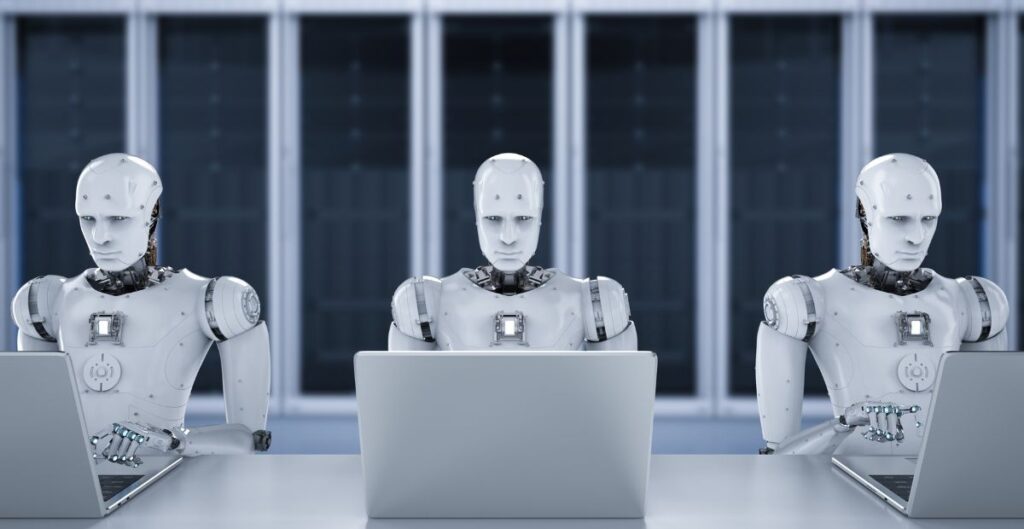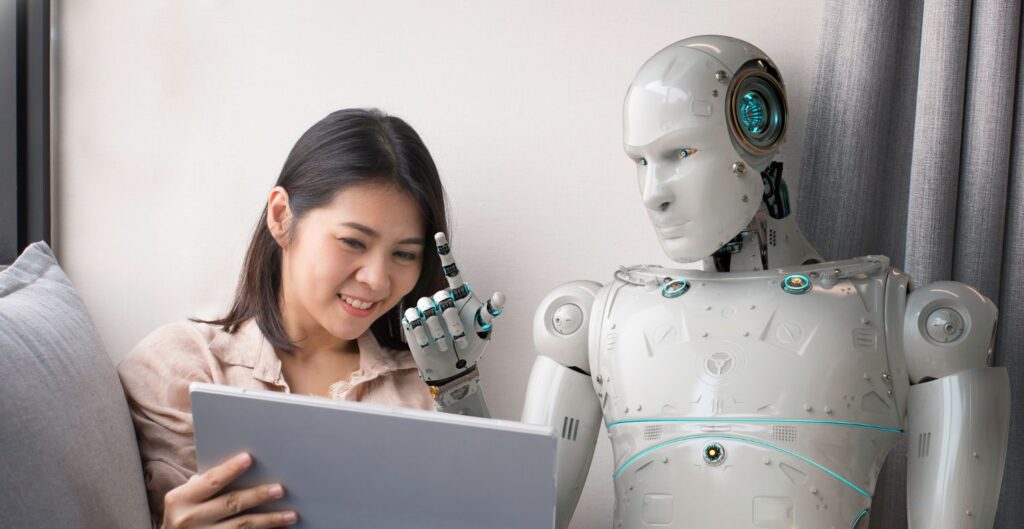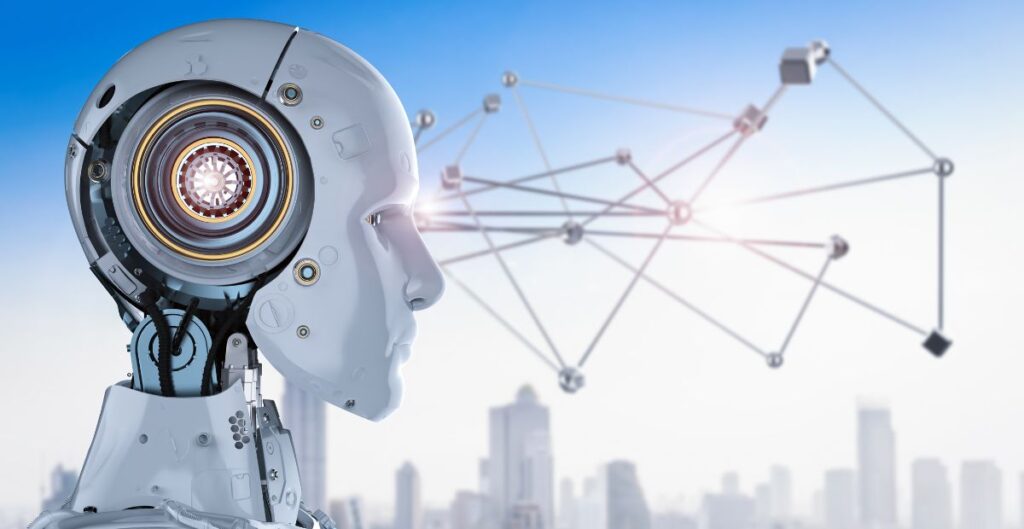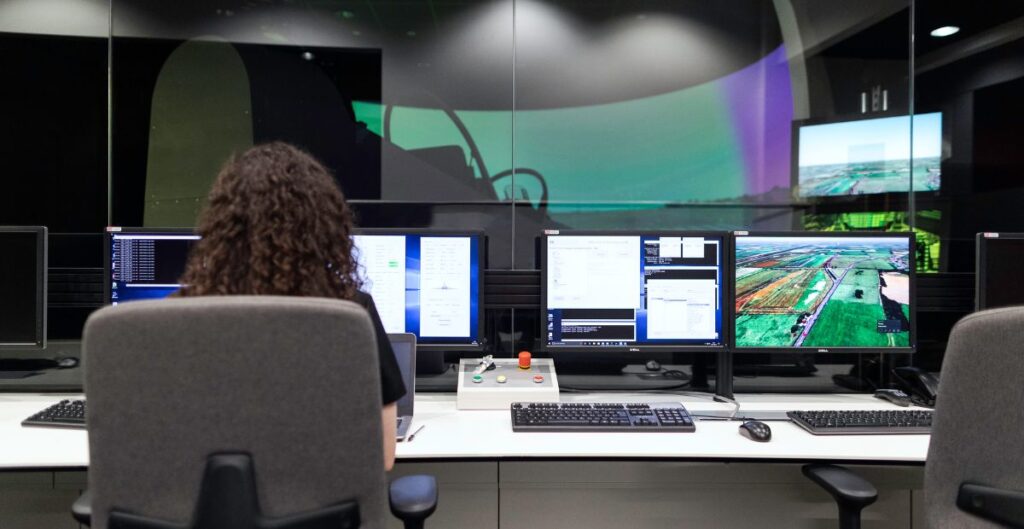AI Tools and Technologies
AI has introduced several tools that impact software development, mainly through automation and enhancement:
- Code Generation: Tools like GitHub Copilot and OpenAI Codex assist in writing code by providing code snippets, completing lines, or even generating entire functions based on natural language input from the user.
- Automated Testing: AI-powered models can perform testing more efficiently than manual methods, especially in identifying bugs and assessing software performance.
- Debugging: AI can analyze code to detect and diagnose errors, reducing the time developers spend on debugging.
Examples of AI in Action
- GitHub Copilot: Created jointly by GitHub and OpenAI, Copilot assists programmers by suggesting code examples and functions as they code. Its primary purpose is to simplify coding and reduce repetitive tasks.
- OpenAI Codex: This generative AI model specializes in programming languages, understanding and creating code from natural language descriptions. It aims to make coding more intuitive and accessible.
Current Limitations of AI
While AI tools offer significant advantages, they also have limitations:
- Complex System Design: AI struggles with developing intricate software architectures that involve complex business requirements and user demands.
- Creative Problem-Solving: AI lacks the creativity and intuition needed to address novel problems or innovate beyond existing patterns.
- Contextual Understanding: AI may not fully grasp the context of specific projects, potentially leading to less effective or incorrect code recommendations.
The question of when AI can replace a software engineer, any software engineer of Bill Gates’ caliber requires insight into AI’s potential and talent like Gates’.
Current Capabilities of AI
AI has come a long way in the recent past, including robotics, automating occurrences, organizing work, and even coding. GitHub Copilot and OpenAI Codex are good examples of tools that can be used for code completion and debugging as well as for generating code fragments.
However, these tools are restricted by the training dataset and the algorithms that they have incorporated.
They can execute positivistic and precise tasks but cannot engage in strategic thought, creativity, and problem-solving that demand high context apprehension of human relations and situations.
Bill Gates’s Unique Contributions
Although Gates is recognized as a programming wizard, he is, in addition to that, renowned for his ability to think strategically, and for leadership. Gates is an iconic software developer, and he is best known as the co-developer of Microsoft Corporation.
His skills also include business, management, and even the international charity sector apart from coding.
Both of these elements of Gates’s career entail strategic decision-making, strategic planning, and conceptual problem-solving – all of which are domains where AI is presently ineffective.
AI’s Limitations in Replacing Human Expertise
AI is particularly good at completing those specific tasks that it can do lots of times over and is often useful in increasing the efficiency of operations.
This ends in positive results; however, it bears no human traits that could foster innovation and leadership.
It is impossible for an AI to engage in creative thinking and, besides, to be sensitive to certain changes in the industry, to make effective decisions, and to prepare effective team speeches.
What sort of role AI will play in the future?
AI is expected to keep on growing and expanding and is expected to integrate itself into different areas such as software development.
However, AI will help extend human capabilities a great deal rather than overhaul and replace human capabilities.
While for someone like Bill Gates, AI may help with technical work and give him statistical analysis, the kind of conceptual planning and creative thinking that Gates offers is still beyond the capabilities of AI.
Analysis of Expert Opinions

Analysis of Expert Opinions
Coursera Article Summary
According to Coursera, the future of AI in software development is more about assisting developers than replacing them.
AI can handle repetitive and time-consuming tasks, such as code completion and error detection, freeing developers to focus on more complex and creative aspects of their work.
However, problem-solving and higher-level thinking will continue to depend on human developers.
Medium Article Insights
In an article published on Medium by a seasoned software engineer with 30 years of experience, it is emphasized that AI will revolutionize the profession but will not eliminate the need for developers.
The article highlights the importance of collaboration between AI and human developers.
While AI tools can improve efficiency and speed, human direction and creativity are essential for tackling large projects and creating innovative software solutions.
CompTIA Blog Perspectives
The CompTIA blog provides insight into how AI will change the nature of software development jobs. While AI will alter job roles and the skills required, it will not replace human developers.
Core skills such as critical thinking, system architecture, and user experience (UX) design will remain valuable. Developers will need to adapt by integrating AI tools into their work and enhancing their skill sets.
Important Figures and Facts
Projected Growth of AI in the Technology Sector
The AI industry is experiencing significant growth. The market for AI is expected to reach approximately $190 billion by 2025, with a compound annual growth rate (CAGR) of 36.2%.
This growth reflects increased investment and adoption of AI technologies across various fields, including software development.
Insiders’ Perceptions of AI Consequences
Surveys of software developers reveal a generally positive outlook on AI’s impact. For example, a recent Stack Overflow survey found that while developers are enthusiastic about AI tools, they also recognize their limitations and the continued necessity of human input.
Approximately 50% of developers believe that AI will enhance their work as an assistant rather than replace their jobs entirely.
Case Studies
- AI-Augmented Development: In a case study involving a major tech company, AI tools improved coder efficiency by 30%. However, the company still relied heavily on human developers for system design and complex problem-solving.
- AI in Debugging: Another case study demonstrated that AI-powered debugging tools reduced the time needed for bug discovery and correction by 40%, showcasing the effectiveness of AI in enhancing developer efficiency.
Future Trends and Adaptations
Emerging Trends
As AI technology continues to advance, its role in software development is expected to evolve:
- Increased AI Integration: AI tools will become more embedded in development environments, offering real-time assistance and insights.
- Enhanced Collaboration: AI will serve as a valuable ally to developers, improving productivity and fostering creativity.
Skills Evolution
The role of software developers will change as AI becomes more prevalent. Key areas of focus will include:
- AI and Machine Learning: Understanding how to integrate AI tools and machine learning into software projects.
- Data Analysis: Skills in data analysis will become increasingly important, as AI relies on data for its functionality.
- Creative Problem-Solving: Despite AI’s capabilities, human creativity and problem-solving skills will remain crucial for addressing complex challenges and developing innovative solutions.
Educational Adaptations
To prepare for the future, educational programs and training for software developers will need to adapt:
- Curriculum Updates: Incorporating AI and machine learning into computer science curricula.
- Continued Learning: Emphasizing the importance of lifelong learning and staying updated with emerging technologies.
FAQs
Is the process of development taking place to the extent that all software developers can be replaced by artificial intelligence in the future?
Of course, AI won’t replace the developers in every single aspect but will surely assist the developers in many ways.
It will help in those tasks that can be mechanized, but actual developers will always be required to apply their brains to do core work.
What kind of activities remain out of reach for AI in software development at the moment?
AI is capable of every aspect of a development project such as code generation, testing, and even debugging.
There are several areas of limitation of the deployment of artificial intelligence in software development.
AI has limitations as it fails in system design, idea application,n and perception of the project environment.
What are the lines of questions arising when thinking about the influence of AI on the work of software developers?
There is also the potential impact of Automation which will in the future leave pretty much menial work in the hands of AI while the developers concentrate on issues like system design and invention.
Will software developers be required to acquire new forms of training to be able to engage in the development of AI tools?
Indeed, developers will have to familiarize themselves with artificial intelligence tools, machine learning, and data analysis.
In what ways are educational programs today or shortly going to equip future software developers for AI?
The use of artificial intelligence should be incorporated into the programs and students taught the importance of lifelong learning.
Is it possible to increase the effectiveness of software development through the help of AI tools?
Indeed, AI in software development helps reduce time by automating recurrent processes and accelerating SW code creation.
What strategies should software developers take to cope with the existence of artificial intelligence?
Developers, should incorporate the use of AI tools, be keen on soft skills, and update their knowledge to reflect current advancements.
Will AI replace IT professionals?
Conclusion
In summary, the development of AI tools will bring significant changes to software development, but it will not replace developers entirely.
AI tools will assist in tasks such as debugging and automating repetitive duties, thereby saving time and enhancing productivity.
However, human developers will remain essential for system design, problem-solving, and creative work.
As technology advances, software developers must adapt by updating their skills and embracing AI as a tool that supports their work.
Understanding and utilizing AI will help developers remain at the forefront of the industry and ensure the continued importance of their profession in a technology-driven world.
References
- Coursera Article on AI and Software Development
- Medium Article on the Impact of AI on Software Engineering Jobs
- CompTIA Blog on AI and Software Developers
- Market Growth Data and Industry Reports
- Developer Surveys and Case Studies
This analysis highlights the potential of AI technologies while acknowledging their limitations. Organizations and developers should leverage AI tools to enhance their work and remain competitive in the evolving tech landscape.




